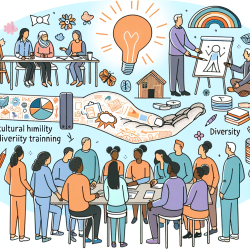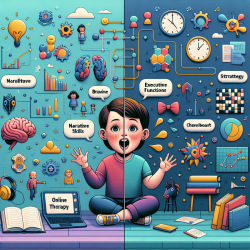The mental health landscape for children and adolescents has been significantly impacted by the COVID-19 pandemic. Among the various challenges faced, self-harm has emerged as a critical concern. This blog post explores insights from the research article "Equitable assessment and treatment of self-harm" by Burton E. Thomaseo, highlighting how practitioners can enhance their skills to provide equitable care.
The Challenge of Self-Harm in Adolescents
Self-harm, or non-suicidal self-injury, is a prevalent issue among young people, with lifetime prevalence rates ranging from 17% to 60%. It serves as a coping mechanism for regulating intense negative emotions, stress, and feelings of emptiness. The pandemic has exacerbated these issues, particularly among minoritized ethnic groups who face additional barriers to accessing mental health resources.
Understanding Inequities in Assessment
The research by Farooq et al. (2021) highlights significant disparities in the assessment of self-harm across different ethnic groups. Black, South Asian, and other non-White children are less likely to receive psychosocial assessments compared to their White peers. This inequity can lead to undiagnosed mental health conditions that remain untreated and potentially worsen over time.
Steps Toward Equitable Treatment
To address these disparities, practitioners should focus on the following strategies:
- Diversity Training: Engage in training programs focused on diversity, cultural humility, and anti-racism to identify and mitigate conscious and unconscious biases.
- Culturally Appropriate Methods: Develop and implement culturally sensitive prevention, assessment, and treatment methods. Understanding family dynamics and intersecting identities such as race, ethnicity, gender, social class, disability status, and religious beliefs is crucial.
- Create Safe Spaces: Ensure that young people from minoritized ethnic backgrounds feel safe and heard by their care providers. This can increase their willingness to seek help.
The Role of Practitioners in Shaping Future Outcomes
The ongoing impact of the pandemic on child and adolescent mental health necessitates proactive measures from practitioners. By adopting equitable practices and continuously improving their skills through research and training, practitioners can better support diverse populations facing self-harm challenges.
The journey toward equitable mental health care is ongoing. To delve deeper into the findings of this research study and its implications for practice, I encourage you to read the original research paper: Equitable assessment and treatment of self-harm.










